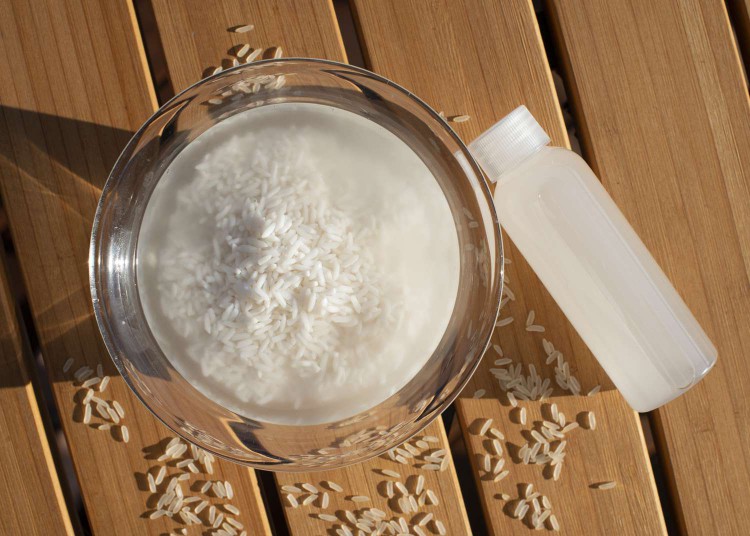
- New research found that people who had either too high or too low levels of HDL cholesterol were at an increased risk of dementia.
- The increase in dementia risk was seen more in study participants with “too high” a level of HDL.
- Experts recommend people who are worried about dementia risk follow simple, healthy lifestyle practices in addition to focusing on managing their cholesterol.
How much “good” cholesterol you have is linked to your risk of dementia, according to a new study.
Research published earlier this month in Neurology found that both high and low levels of HDL cholesterol—commonly referred to as the “good” type of cholesterol—were associated with an increased risk of developing dementia.
While the results show a clear correlation, this does not mean that everyone within the high and low ranges will definitely develop dementia, Erin Ferguson, MPH, the lead researcher on the study and a doctoral student at the University of California San Francisco told Health.
Instead, it is a marker to be aware of and potentially address with a healthcare provider.
“We found that people with very low values of HDL-C had a slightly higher risk of dementia compared to people with values in the middle, but also people with very high levels of HDL-C also had a slightly higher risk of dementia than people in the middle,” Ferguson explained.
In contrast, researchers found no association between LDL-C (commonly referred to as “bad” cholesterol) and dementia.
Here’s how HDL cholesterol and dementia are connected, why managing levels of HDL cholesterol is important, and how experts recommend prioritizing the risk of dementia.

Getty Images / SDI Productions
Tracking the Connection Between Cholesterol and Dementia
The study, which was supported by the National Institute on Aging and the National Institutes of Health, was conducted using survey participants from Kaiser Permanente Northern California.
According to Ferguson, this provided the team with a large sample size that helped them account for clinical, social, and behavioral factors in their analysis.
To look at the association between HDL levels and dementia, researchers first categorized individuals into five groups based on their average HDL-C. From there, they were able to notice some patterns.
“Individuals with the lowest HDL-C (11–41 mg/dL) had a 7% increase in the rate of dementia compared to individuals in the middle quintile (48–55 mg/dL),” Ferguson explained, “whereas individuals with the highest HDL-C (>65 mg/dL) had a 15% elevation in the rate of dementia compared to the middle group.”
The study’s comparison group included people with middle levels of HDL-C (48–55 mg/dL)—that group actually had the lowest risk of dementia.
Though these findings are intriguing, Ferguson explained that more research needs to be done before changes in behavior would be recommended.
“This work suggests that some lipoproteins (like HDL) may be modifiable risk factors of dementia, even in late life, but to take advantage of this we need to next evaluate whether these effects are causal and how to effectively modify HDL,” she said.
Future studies will need to investigate causal relationships at play to confirm that there is clinical relevance, she explained.
Exercise, Doing Chores, and Socializing Can All Help Lower Dementia Risk, Study Shows
Addressing Your Good Cholesterol Levels
This research suggests that even though HDL cholesterol is considered “good” for your body, it’s important to keep it within the recommended range to avoid a negative impact on the brain health or vascular system.
“High levels of HDL cholesterol have also been associated with increased risk for vascular disease,” Ferguson said. “This is thought to be due to abnormal metabolism of HDL, which can reverse its protective role and lead it to acquire pathologic properties including increased content of molecules that promote inflammation, another key process in the development of Alzheimer’s disease.”
Likewise, she says a low blood level of HDL cholesterol is known to be a significant risk factor for vascular disease, and vascular disease influences brain health and contributes to dementia risk.
“Vascular disease can involve plaque buildup in blood vessels in the brain, which can be a significant contributor to the development of dementia,” Ferguson explained.
For instance, the apolipoprotein E (APOE) genotype—the gene that makes a protein that carries cholesterol and other types of fat in the bloodstream—also has been associated with an increased risk of late-onset Alzheimer’s disease if people have the e4 allele (the gene that increases their risk.)
The exact role of cholesterol in developing dementia is still largely unknown, though, and more studies need to be done. But this doesn’t mean you shouldn’t still keep your numbers in line as a preventative step.
“We are always encouraging folks to get their high lipid levels corrected to help prevent strokes and heart attacks,” Scharre said. “This would still be the same for those at risk for dementia and those that have dementia.”
Sitting More Than 10 Hours A Day Might Increase Your Risk of Dementia
How to Reduce Your Risk of Dementia
In addition to keeping your cholesterol numbers in check, there are other things you can do to prevent the development of dementia.
Researchers note that as many as 40% of dementia cases can be prevented—or at the very least delayed—by modifying 12 important risk factors in your life.
These modifiable risk factors include:
- Regulate blood pressure: Having consistently high blood pressure in midlife raises your risk of developing dementia compared to those with normal blood pressure.
- Prevent type 2 diabetes: Living with diabetes during midlife increases the risk of dementia, particularly Alzheimer’s disease and vascular dementia.
- Manage your weight: Being obese, especially during midlife, can increase your risk of not only developing dementia but also developing other conditions like type 2 diabetes.
- Stop smoking: Smoking elevates your risk of developing dementia compared to nonsmokers and those who have quit smoking.
- Stay physically active: Leading a more sedentary life later in life, especially after age 65 can increase your risk of developing dementia.
- Challenge your brain: Lacking cognitive engagement can deplete your cognitive reserve and lead to dementia.
- Address hearing loss: Experiencing mild levels of hearing loss, and not having it treated, can lead to dementia—though the exact reason is still unknown.
- Eat nutritious food: Eating a diet high in saturated fat, sugar, and salt, can increase the risk of developing dementia as well as cardiovascular disease.
- Limit alcohol consumption: Drinking large amounts of alcohol on a weekly basis (12 or more drinks a week) increases your risk of dementia later in life.
- Engage with others: Lacking social connections or being isolated can increase your risk of dementia, as well as hypertension, heart disease, and depression.
- Get depression treated: Experiencing depression in midlife or even later in life can elevate your risk of getting dementia.
- Prevent traumatic brain injuries: Falling is one of the most frequent causes of traumatic brain injury and increases the risk of dementia.
Scharre explained there are many things he recommends patients do to reduce their risk of dementia, many of which are simple and achievable.
“Make sure the brain is getting enough oxygen and blood flow (treat sleep apnea, lung disorders, heart disorders), eat a well-balanced Mediterranean-like diet (reduced red meat, more fruits and vegetables, and reduced processed sugars), use it or lose it (physical exercise and socialization are good brain stimulation activities), and get good quality and quantity of sleep,” he said.
He also recommends taking the SAGE (Self-Administered Gerocognitive Examination) test yearly to help identify cognitive symptoms early.
Spending 2 Hours Online Every Day Could Reduce Dementia Risk in Older Adults



























































